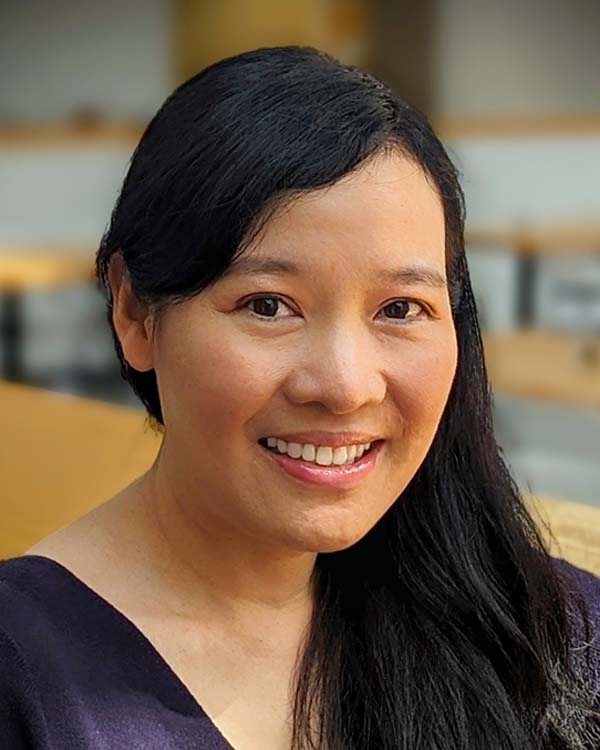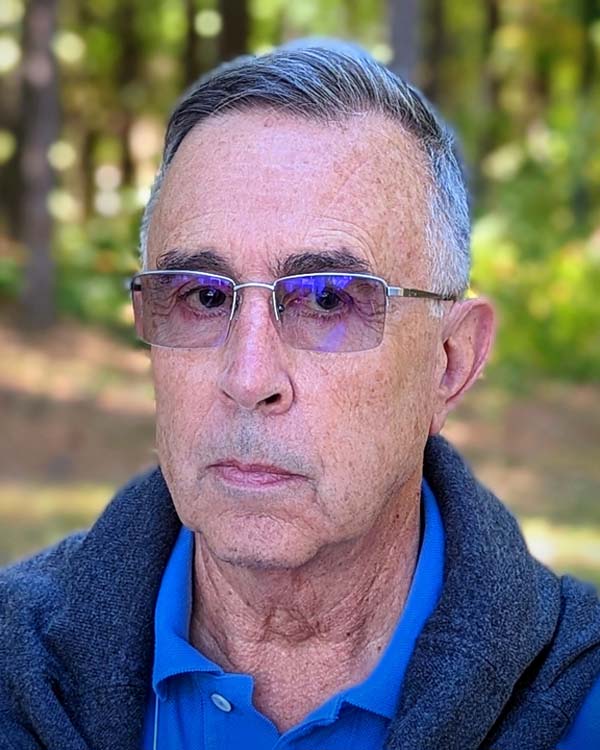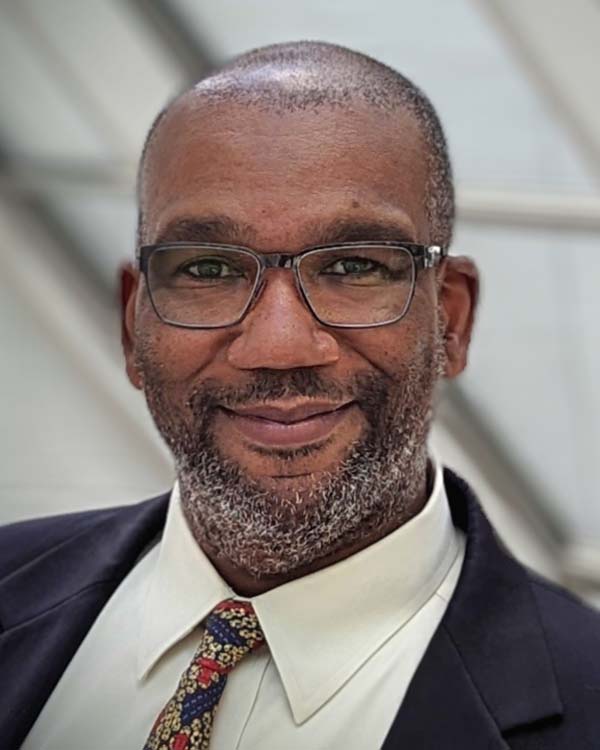This month we highlight the research of Fellows from the class of 2022–23 whose projects examine the ways that people have dealt with the oppressive actions of state actors in a variety of cultural and political contexts since the early twentieth century.

Erdağ M. Göknar
Duke University

Rowena Xiaoqing He
The Chinese University of Hong Kong

Héctor Pérez-Brignoli
Universidad de Costa Rica

Cedric R. Tolliver
University of Oklahoma
Erdağ M. Göknar
Legal and Affective Archives of Atrocity: Allied Occupied Istanbul (1918–23) and the Armenian Genocide
Erdağ Göknar is associate professor in the Department of Asian and Middle Eastern Studies at Duke University and former director of the Duke Middle East Studies Center. He is a scholar of literary and cultural studies and an award-winning translator whose research focuses on intersections of literature and politics in Turkey and the Middle East; specifically, on late Ottoman legacies in contemporary Turkish fiction, historiography, and popular culture. His books include a monograph entitled Orhan Pamuk, Secularism and Blasphemy: The Politics of the Turkish Novel (Routledge, 2013); a coedited volume, Mediterranean Passages: Readings from Dido to Derrida (UNC Press, 2008); and English-language translations of Ahmet Hamdi Tanpınar’s A Mind at Peace (Archipelago Books, 2011), Orhan Pamuk’s My Name is Red (Knopf, 2010; 2001), and Atiq Rahimi’s Earth and Ashes (Harcourt, 2002). At the intersection of law and literature, his current research focuses on the Allied occupation of Istanbul after WWI, popular sovereignty, and state violence.

What was the initial spark that led you to this project? What are the big questions that you are considering?
Broadly, my research interests focus on identity and subjectivity as represented in cultural forms such as literature and historiography. This project contrasts legal and literary imaginaries in the moment of the Allied Occupation of Istanbul. In a legal context, such as the war crimes tribunal held to address the Armenian genocide during that occupation, why must we analyze culture? Why is a literary analysis vital to approaching issues of conflict that are legal, political, and historical? And what kind of value do archives that are incomplete and fragmentary offer to scholarship?
In the course of your research have you run across anything that genuinely surprised you? What can you tell us about it?
Yes, among the war crimes tribunal documents there are interrogatories—questions that prosecutors asked suspects during this period—however, they’re incomplete. They don’t include the answers, for example, just the questions. But the questions themselves are extremely revelatory. In a legal framework, they would be dismissed for lack of probative value. But in an interdisciplinary, cultural analysis, they point to a genocidal landscape within state and society that exists outside the evidentiary rules of the courtroom.
What new avenues of inquiry do you hope this research will prompt or make possible in your field?
The literary reading enables us to revalue the archive affectively in a way that gives it testimonial force that it’s stripped of otherwise. Today, the Turkish government might acknowledge Armenian deportations and massacres, but refuses to acknowledge the intent to harm or kill Armenians as genocide. An intertextual and “affective reading” of these documents makes it impossible to deny that intent. Hopefully, this work will encourage others who may know of other lesser known or marginalized archives that may be worth reexamining and refiguring. I hope to encourage others to retrieve archival stories in innovative and politically engaging ways.
Rowena Xiaoqing He
One Generation, Two Loyalties?: Evening Chats in Hong Kong
Rowena Xiaoqing He is a sinologist and historian of modern and contemporary Chinese society and politics. As a scholar of Tiananmen, the 1989 pro-democracy movement, she is interested in the nexus of history, memory, and power, and their implications for youth values, identity, and social change. Her first book, Tiananmen Exiles: Voices of the Struggle for Democracy in China was named one of the top five books about China in 2014 by the Asia Society’s ChinaFile. In 2018, she was selected as a member of the Institute for Advanced Study at Princeton. Before joining The Chinese University of Hong Kong in 2019, she taught at Harvard University, Wellesley College, and Saint Michael’s College. She received the Harvard University Certificate of Teaching Excellence for three consecutive years for the Tiananmen courses that she created. At The Chinese University of Hong Kong, she received the Faculty of Arts Outstanding Teaching Award 2019–20 and 2020–21.

What was the initial spark that led you to this project? What are the big questions that you are considering?
The past two decades I have witnessed a war of memory against forgetting. I try to understand the nexus of history, memory, and power, and their implications on youth values, democratization, and world peace.
In the course of your research have you run across anything that genuinely surprised you? What can you tell us about it?
Human beings’ longing for truth and justice, as the power of the powerless, cannot be crushed by guns, tanks, and jails.
What new avenues of inquiry do you hope this research will prompt or make possible in your field?
1. To preserve the memories of the forbidden past; 2. To understand what young people need to be informed and responsible citizens; 3. The importance of contexts in our understanding of international relationship. It shouldn’t be just about numbers and tables. The importance of connecting the personal with the social, political, historical, and cultural. 4. If we want light, we must conquer darkness.
Héctor Pérez-Brignoli
Rebellious People: Patterns of Social Revolt and Collective Violence in Central America, 1920–1954
Héctor Pérez-Brignoli attended the University of Buenos Aires (BA, 1967) and the Institut d’études du développement de la Sorbonne (IEDES) (MA, 1970). In 1975, he received his PhD in economic history from the Université Paris 1 Panthéon-Sorbonne. Since 2004, he is professor emeritus at the University of Costa Rica. He has been a Fellow at the Wilson Center (Washington DC), the John Simon Guggenheim Foundation, the Wissenschaftskolleg zu Berlin, and the Institute for Advanced Studies (Universität Konstanz). Pérez-Brignoli cofounded the Center for Historical Research in Central America and the Central American Population Center at the University of Costa Rica. He has been a visiting professor at the Universities of Wisconsin, Texas, Minnesota, and Complutense of Madrid, among many others. His research interests include Central American history, Latin American history, historical geography, and historical demography.

What was the initial spark that led you to this project? What are the big questions that you are considering?
My paper about the Salvadoran insurrection of 1932, written in 1989 and published in 1995. I was astonished by the variety of interpretations and a kind of official story developed by the communist party. I became aware of the necessity to contrast the actual events with memories and interpretations. I decided to propose a comparative research covering all the five Central American countries after the 1920s regarding social movements and collective violence.
In the course of your research have you run across anything that genuinely surprised you? What can you tell us about it?
First was the contrast between the Costa-Rican path to democratic rule, particularly enforced after 1948, and the other Central American countries that were dominated by authoritarian rule and a never-ending search for democracy. Second, the idea that the major events selected for comparison in the project were deep rooted in the history of each country and have been playing an important role in the making of the social and political future.
What new avenues of inquiry do you hope this research will prompt or make possible in your field?
Perhaps to propose new ways of thinking to develop a new consciousness of the past.
Cedric R. Tolliver
Spook(ed): African American Literature, National Security, and the Fictions of Statecraft
Cedric R. Tolliver is associate professor in the English department at the University of Oklahoma. His scholarship and teaching focus on African American literature, culture, and politics. His book, Of Vagabonds and Fellow Travelers: African Diaspora Literary Culture and the Cold War, was published by the University of Michigan Press in 2019 and recognized as a 2020 CHOICE Outstanding Academic Title. His work has appeared in Arizona Quarterly and the Journal of Postcolonial Writing, among other venues. During his time at the National Humanities Center, Tolliver will conduct research for and write his second book manuscript, Spook(ed): African American Literature, National Security, and the Fictions of Statecraft. Reading spy thrillers alongside political memoirs, the book mines a fundamental tension at the heart of the project of racial integration in the United States over the last seventy years: the incorporation of individual African Americans into the state apparatus while as a group African Americans have been viewed almost exclusively as an internal subversive threat.

What was the initial spark that led you to this project? What are the big questions that you are considering?
So many sparks. Let’s just say when I made the connection that Leontyne Price’s patron, Elizabeth (Wisner) Chisholm’s brother, Frank Wisner, was the director of the Office of Policy Coordination, the covert wing of the CIA responsible for funneling money to cultural front organizations during the early Cold War. The big questions I’m considering are how did US government agencies understand and respond to racial discrimination as the “Achilles’ heel” of national security? How did those African Americans incorporated into the state apparatus think about race?
In the course of your research have you run across anything that genuinely surprised you? What can you tell us about it?
J. Saunders Redding, who went to India in 1952 at the request of the State Department, was hired as the first tenured African American faculty member at Cornell University following an armed (with shotguns!) demonstration by Black students.
What new avenues of inquiry do you hope this research will prompt or make possible in your field?
I hope the research will help us reflect on what I think of as a pretty understudied phenomenon. In my field, I hope it will give space for us to consider narratives about African Americans that sit uneasily within the binary of resistance/capitulation. And it will open up new perspectives on the last 70 or so years of our history.
